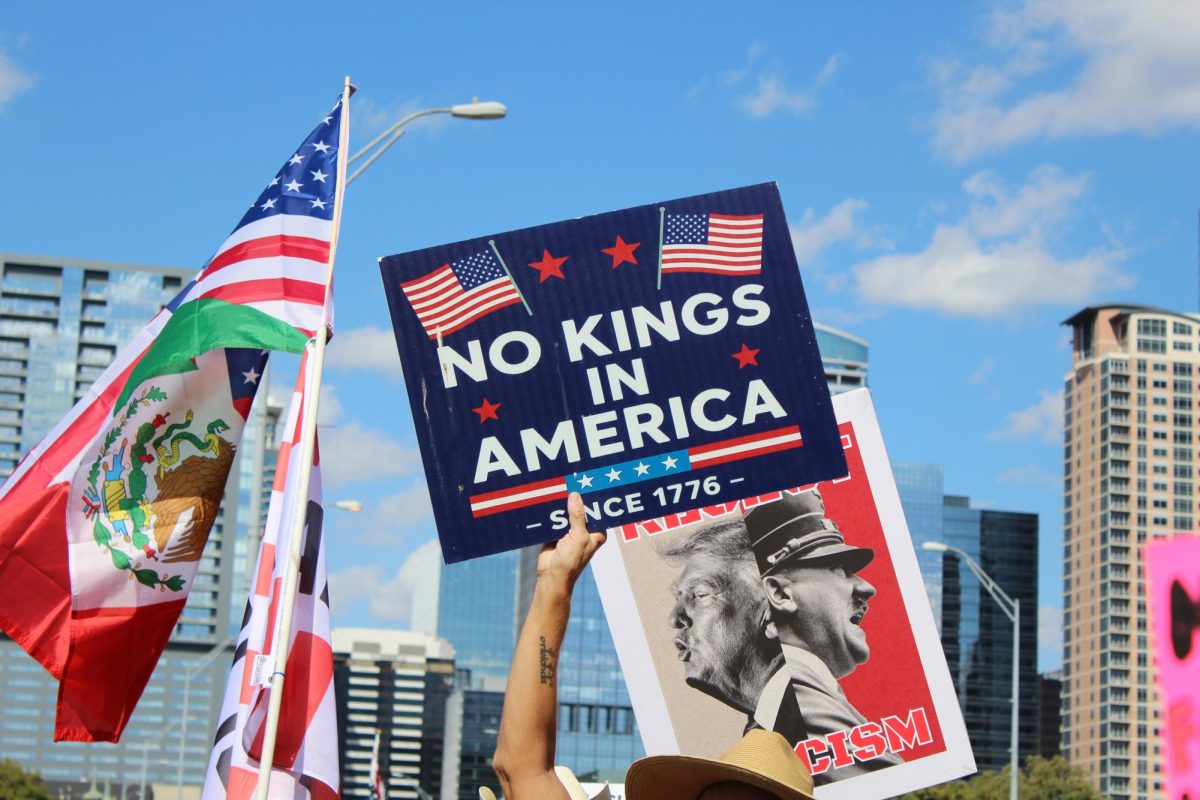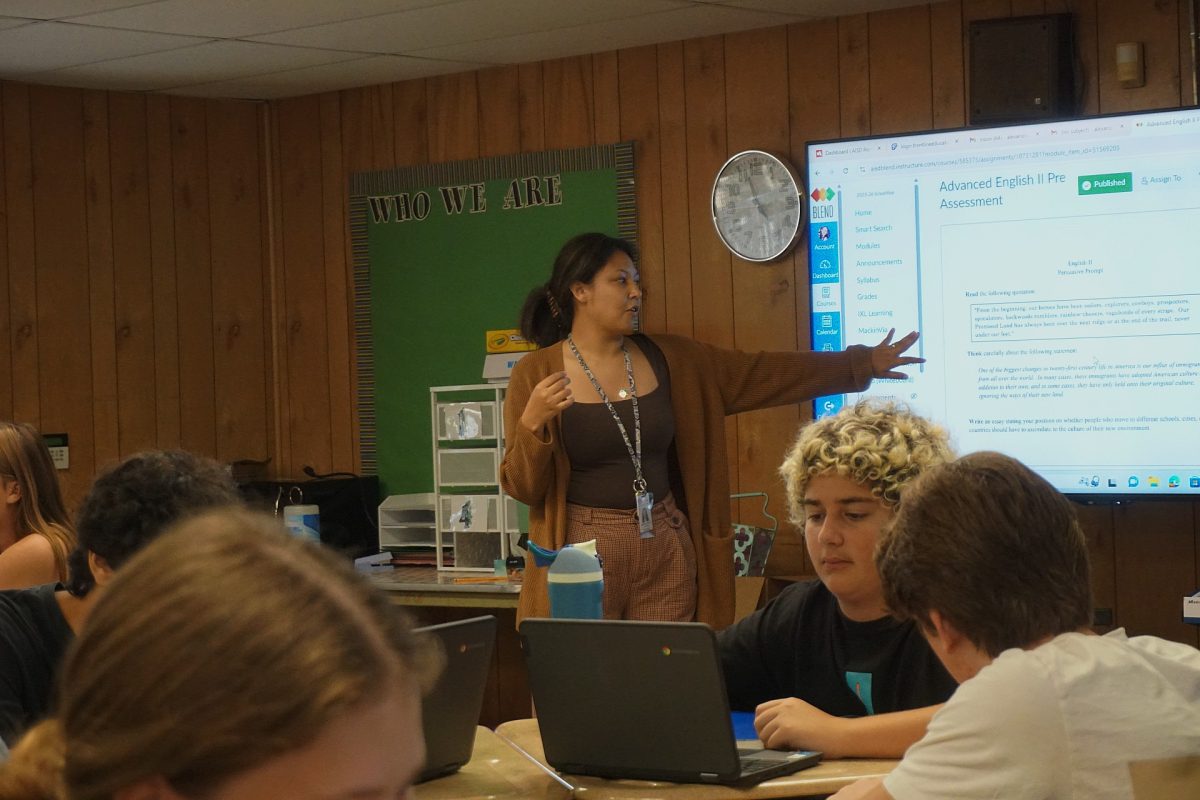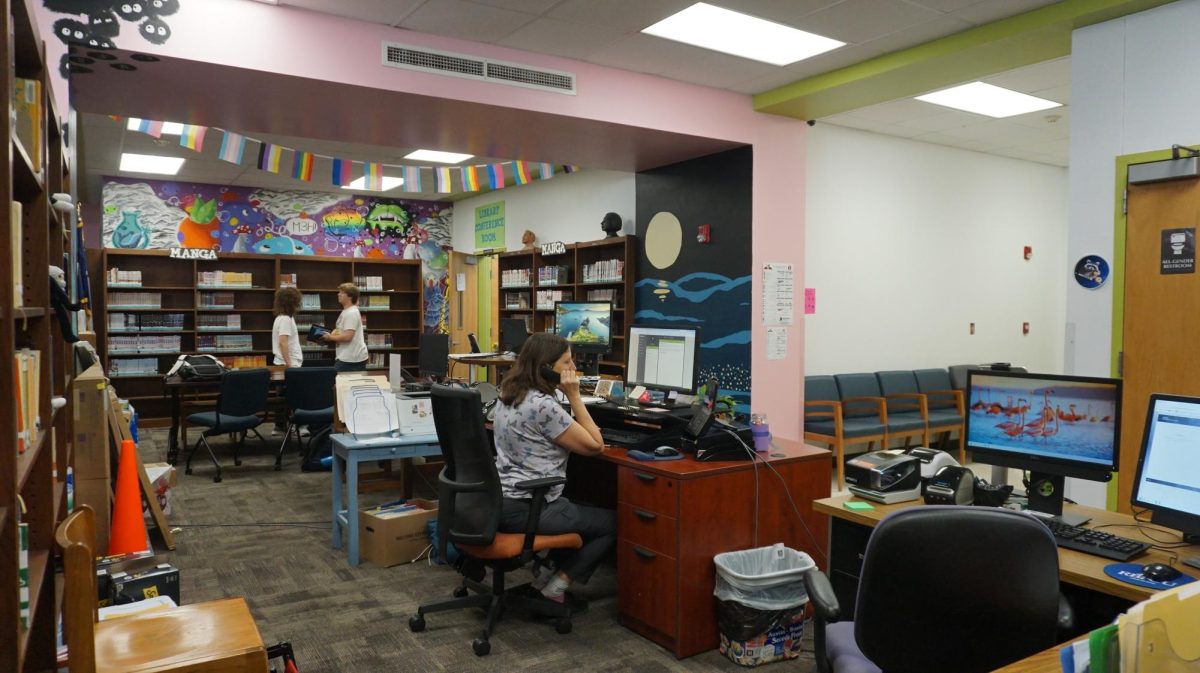The first 100 days of President Donald Trump’s second term have attracted considerable controversy over the signature of 45 executive orders and political appointments that critics perceive as regressive and outmoded. Trump signed 26 on his first day in office, Jan. 20. Such orders include a motion to end birthright citizenship, with planned ICE raids in New York, Miami and Chicago, restoring the death penalty and condemning surgical transition for transgender people, calling it “mutilation.” A Reagan-appointed federal judge, John Coughenour, blocked the ending of birthright citizenship, calling it “blatantly unconstitutional.”
Other moves include the planned demolition of the Department of Education, a longtime campaign promise of Trump’s, and the appointment of Pete Marocco, a suspected Jan. 6 rioter, as director of the United States Agency for International Development by secretary of state Marco Rubio. Rubio, who currently serves as the department’s interim director, instituted mass layoffs within the organization. Elon Musk, the current head of the Department of Government Efficiency (which despite being called a department is not a part of the Cabinet but rather the White House) described USAID as “a criminal organization.”
Furthermore, the United States left the World Health Organization, drawing the ire of medical professionals. AP Environmental Science teacher Elaine Bohls-Graham fears the ecological and epidemiological ramifications of Trump’s executive orders, including his lifting of the requirement to be vaccinated for COVID as a government official.
“My main concern is the CDC was told not to cooperate with the World Health Organization, which could be a long-term environmental problem,” Bohls-Graham said. “It’s going to be interesting to see if he tries to shut down the U.N.”
Bohls-Graham drew attention to Trump’s attempts to shift course from the Biden administration’s stance on environmental regulations thus far. Namely, Trump has called on the Environmental Protection Agency to review policies pertaining to the social cost of carbon and a 2009 endangerment finding regarding the presence of global greenhouse gas emissions.
“If he’s drilling in the Arctic, he’ll be destroying the permafrost and the tundra, destroying that habitat,” Bohls-Graham said.
Unfortunately for Bohls-Graham and other Texas environmentalists, only 4% of Texas respondents to a March 27 Texas Public Opinion Research poll chose climate control as their top priority in the state. It was ranked No. 12 overall.
In the same poll, 24 percent named immigration and border security as their top priority (No. 3 overall).
Bohls-Graham expressed concern over that issue as well, fearing a possible border conflict due to ongoing shifts in the geographic landscape along the Rio Grande. Following the Mexican-American War, the United States negotiated a treaty with Mexico delineating the border between Texas and the Mexican states of Chihuahua, Coahuila and Tamaulipas.
“The treaty states that the border will always be in the center of the river, but over time, the river’s oxbows have changed pathways and formed cenotes, changing the border per the treaty,” Bohls-Graham said. “What happens if Trump becomes aware of this and decides to claim the land gained from weathering and erosion of the river?”
According to the Texas Public Opinion Research poll, only 2% wanted lawmakers to focus on cultural issues. The Trump administration’s attempts to eliminate DEI programs is of paramount concern to Tonya Moore, Fine Arts Academy assistant and sponsor of the Students of Color Alliance. In three separate executive orders, Trump deemed DEI initiatives to be “radical and wasteful” initiatives and said his actions would restore “merit” to government service and to higher education. Moore defended DEI policies as essential and said they affect how she’s perceived as a Black woman in the workforce, and consequently, inform her behavior.
“Even when I first came to McCallum, I looked to see if they had diversity on staff because that’s important,” Moore said. “Your place of employment should be comfortable. Without affirmative action, this reduces that comfortability. Some people might refuse to hire any people of color. It puts a disadvantage for people of color applying.”
Moore also stated that diversity at her workplace has a tangible impact on her expression, both culturally and as an individual.
“When I’m applying for a job, I think about how I’m going to wear my hair,” Moore said. “Some hairstyles are perceived as threatening. I need to know if I can wear an Afro or if I need to wear my hair straight. I wouldn’t go to an interview in a Kente skirt.”
Moore reflected on her own experiences with representation and the potential barriers to entry that the rollback of DEI may impose on younger generations. To Moore, systemic racism has severe ripple effects, decades after the Civil Rights Act of 1964, which prohibited discrimination in public places, provided for the integration of schools and other public facilities, and made employment discrimination illegal.
“I like seeing people of color in high positions of power,” Moore said. “I don’t see it often enough. But even as a grown person, it makes me feel like I can strive for that. If you don’t see it, you can’t do it. When I was growing up, I don’t think I ever had a Black teacher. I think it would’ve made a difference in my life and my spirit.“
Sophomore Elizabeth Peables agrees with Moore. Peables, who is Hispanic and multiracial, believes that Trump’s second term has already emboldened white supremacists, leading to a rise in racial profiling. Peables had a conversation with her mother about what to do if she was racially profiled by ICE officers, despite her status as a citizen.
“As someone who is Hispanic, I think it is so important right now to know that you too have rights, undocumented or not,” Peables said. “Trump has taken the voices of racist, homophobic and misogynistic people, and handed them a megaphone to use to their own advantage. With this in particular ICE has been able to raid Austin, a blue dot in a sea of red.“
Peables, however, has also witnessed organized resistance to ICE—and she’s not alone. Austin ISD released official guidelines in late January detailing protocol for what to do if ICE comes, generally involving noncompliance.
“I believe Austin is a strong community, however, when faced up against challenges, there’s not a lot anyone can do in the situation,” Peables said.
Peables also asserted the vitality of Hispanic people to Austin’s culture, economy and community.
“Austin does have a pretty big Hispanic population. We make up around 33% of the total population,” Peables said. “As a result of having less people around, we will make less money as a city, get fewer things done and lose key heritage connections that Austin once had.”









Anais Long • Apr 23, 2025 at 9:23 pm
I’m so glad this is being talked about and covered in The Shield. Great article!